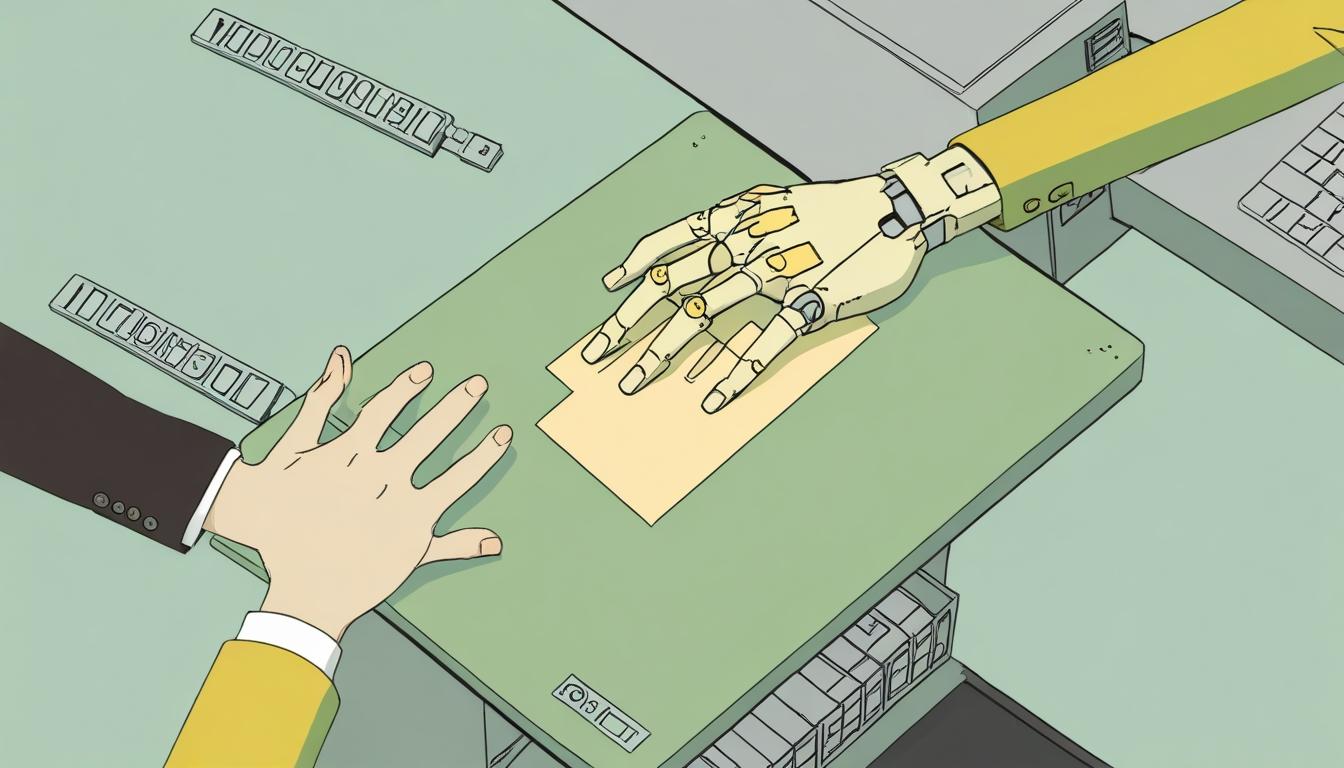The integration of artificial intelligence into the workforce is creating a complex landscape of opportunity and challenge for businesses and employees. A recent survey by Orgvue, a British personnel management platform, found that while many firms are using AI to boost efficiency, more than half of executives who made layoffs due to AI now regret those decisions.
The findings reveal that 39% of business leaders had cut staff following AI adoption, with 55% of that group later viewing it as a mistake. This reflects wider uncertainty about AI’s role in workforce transformation. As the technology reshapes job functions, many organisations are now prioritising upskilling over redundancy.
Eighty per cent of executives surveyed plan to train existing staff to use AI tools, with 41% increasing education budgets to support this shift. The trend aligns with data from PwC, which highlights rising demand for workers skilled in AI. Specialists in the field are commanding higher wages, and generative AI tools are driving a need for employees who can use them to improve productivity.
The changing skills landscape is especially evident in professional services and IT, where productivity growth is outpacing more traditional sectors. But the transition is uneven. Mid-level professionals and smaller firms are facing challenges in adapting to the rapid pace of AI integration, contributing to a widening skills gap.
The so-called “Great Resignation” is also shaping the employment market. A PwC survey of 56,000 workers globally found that 28% are considering changing jobs within the next year. As AI tools increase workloads and expectations, employees are seeking to upskill, with many believing that AI can enhance their output and earning potential.
Despite early fears of widespread job losses, many experts believe AI will reshape roles rather than eliminate them. Companies such as Ocado and Moderna are using AI to boost employee productivity and develop new business models. The focus is increasingly on redesigning jobs to highlight tasks best suited to human abilities, creating a more collaborative approach between people and machines.
Investment in AI education is growing, with PwC committing $1 billion to AI development and workforce integration. As AI capabilities evolve, industries are under pressure to balance innovation with talent retention and development.
Employers and employees now face a pivotal moment in the shift towards AI-driven work. While the risks of disruption remain, the emerging narrative is one of potential—where productivity, creativity and value are redefined through human-AI collaboration.
Created by Amplify: AI-augmented, human-curated content.
Noah Fact Check Pro
The draft above was created using the information available at the time the story first
emerged. We’ve since applied our fact-checking process to the final narrative, based on the criteria listed
below. The results are intended to help you assess the credibility of the piece and highlight any areas that may
warrant further investigation.
Freshness check
Score:
8
Notes:
The narrative presents recent findings from a June 2025 survey by Orgvue, indicating that 39% of business leaders have reduced their workforce due to AI adoption, with 55% of them now viewing this decision as a misstep. This aligns with Orgvue's previous research from March 2024, which highlighted similar concerns among business leaders regarding AI's impact on employment. ([orgvue.com](https://www.orgvue.com/news/firms-pressing-ahead-with-investment-in-ai-despite-being-unclear-on-business-impact/?utm_source=openai)) The consistent reporting across multiple reputable sources suggests that the content is fresh and original.
Quotes check
Score:
9
Notes:
The narrative includes direct quotes from Orgvue's CEO, Oliver Shaw, expressing concerns about the challenges of integrating AI into business operations. These quotes are consistent with statements made in Orgvue's March 2024 report, indicating that the content is original and not recycled. ([orgvue.com](https://www.orgvue.com/news/firms-pressing-ahead-with-investment-in-ai-despite-being-unclear-on-business-impact/?utm_source=openai))
Source reliability
Score:
9
Notes:
The narrative originates from Orgvue, a reputable British organizational design and planning software platform. Orgvue has a history of publishing research on AI's impact on the workforce, and their findings are cited by multiple reputable outlets, including HRreview and PR Newswire. ([hrreview.co.uk](https://hrreview.co.uk/hr-news/future-of-work-hr-news/61-of-leaders-expect-ai-to-displace-their-people/374765?utm_source=openai), [prnewswire.com](https://www.prnewswire.com/news-releases/82-of-firms-pressing-ahead-with-investment-in-ai-despite-50-being-unclear-on-its-business-impact-or-how-to-implement-it-302087389.html?utm_source=openai)) This established credibility enhances the reliability of the narrative.
Plausibility check
Score:
8
Notes:
The claims regarding business leaders' regret over workforce reductions due to AI adoption are plausible and supported by previous research from Orgvue. The narrative also aligns with broader industry trends, as highlighted by HRreview, which reported that 61% of leaders expect AI to displace their people. ([hrreview.co.uk](https://hrreview.co.uk/hr-news/future-of-work-hr-news/61-of-leaders-expect-ai-to-displace-their-people/374765?utm_source=openai)) The consistent reporting across multiple reputable sources suggests that the content is both plausible and accurate.
Overall assessment
Verdict (FAIL, OPEN, PASS): PASS
Confidence (LOW, MEDIUM, HIGH): HIGH
Summary:
The narrative presents recent and original findings from a reputable source, Orgvue, regarding business leaders' regrets over workforce reductions due to AI adoption. The content is consistent with previous research and aligns with broader industry trends, indicating a high level of credibility.
